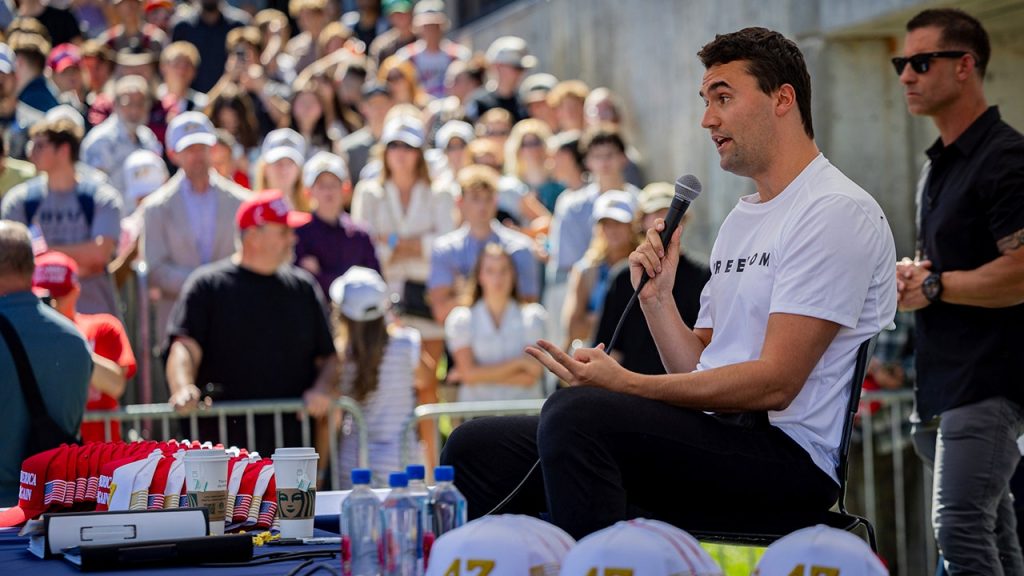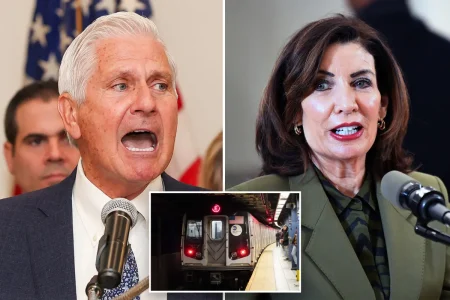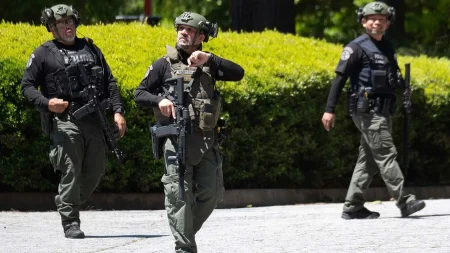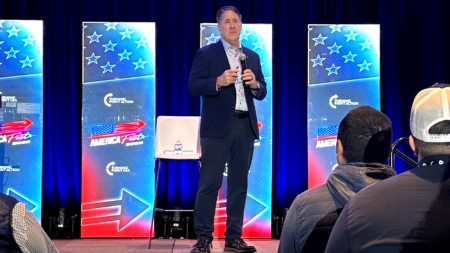Charlie Kirk Assassination Attempt Reverberates Through American Political Landscape
In the wake of the attempted assassination of conservative commentator Charlie Kirk, Americans are grappling with the broader implications for political discourse and safety in a deeply polarized nation. The shocking incident, which has drawn both condemnation and, disturbingly, celebration in some quarters, raises profound questions about the state of civil society and the protection of free expression regardless of political affiliation. As details emerge about the suspect and the circumstances surrounding the attempt, law enforcement agencies have launched investigations not only into the individual responsible but also potential connections to organized groups that may have had prior knowledge of the plans.
The investigation has expanded beyond the immediate suspect to examine whether leftist organizations were aware of the assassination plot before it unfolded. The FBI is reportedly looking into communications and relationships that might indicate a broader conspiracy, rather than the actions of a lone individual. This development comes as disturbing revelations emerge from those close to the alleged would-be assassin, including a roommate who apparently held deeply negative views toward conservatives. These connections paint a concerning picture of radicalization and highlight the danger of dehumanizing political opponents—a trend that seems increasingly common in today’s polarized environment. The incident has also led to additional arrests, including a man who defaced a memorial outside Turning Point USA headquarters, further demonstrating the intense emotions surrounding the event.
Public reaction to the assassination attempt has revealed a troubling divide, with some political figures calling for those celebrating the violence to be “thrown out of civil society.” Comedian Jay Leno characterized the attempt as representing “the death of free speech,” echoing concerns from across the political spectrum about the implications of political violence. The incident comes amid other tensions in American politics, including debates over immigration policy following a machete murder allegedly committed by a Cuban national, which presidential candidate Donald Trump has used to reinforce his calls for stricter immigration enforcement. These events unfold against a backdrop of upcoming elections, with political figures like Zohran Mamdani gaining momentum in the New York City mayoral race and Transportation Secretary Pete Buttigieg suggesting that Democrats might have fared better had President Biden not sought reelection.
The political landscape appears increasingly volatile, with various flashpoints emerging across the country. Reports of alarming student exodus from Chicago schools as families flee the city, along with crime concerns affecting tourism in other urban centers, point to deeper social challenges. Within federal law enforcement, FBI Director Christopher Wray reportedly faces internal power struggles as a new deputy takes office, adding institutional uncertainty to an already complex security environment. International dimensions have also entered the conversation, with discussions about potential U.S. responses to tensions with Venezuela and reflections on the fifth anniversary of the Abraham Accords in the Middle East. These interconnected issues demonstrate how domestic political violence exists within a broader context of governance challenges and international relations.
Amid the serious news, cultural touchpoints provide both distraction and reflection. The Emmy Awards celebrated creative achievements in television, with shows like “The Studio,” “Adolescence,” and “The Pitt” among the top winners. Archaeological discoveries in Israel have unearthed an ancient estate connected to a group mentioned in the Bible, offering fascinating historical perspective. Even consumer culture makes headlines, with Costco’s September offerings generating enthusiasm among loyal customers. Yet these cultural moments occur in the shadow of the Kirk assassination attempt, which has prompted businesses like a frozen yogurt shop to pay tribute to the conservative commentator, demonstrating how the incident has resonated beyond strictly political circles.
The aftermath of the assassination attempt ultimately reflects deeper questions about America’s political culture and commitment to nonviolent discourse. With JD Vance set to host an episode of Charlie Kirk’s podcast and public figures engaging in debates about morality and faith, like the reported clash between Ben Shapiro and Bill Maher over the Bible, Americans continue to navigate challenging conversations about values and beliefs. The fundamental issue remains how to maintain robust political debate without descending into dehumanization and violence. As investigations continue into the Kirk assassination attempt and the broader context surrounding it, the nation faces critical choices about whether to heal divisions or allow them to deepen further, with profound implications for the health of American democracy and the safety of those who participate in public discourse regardless of their political perspectives.











